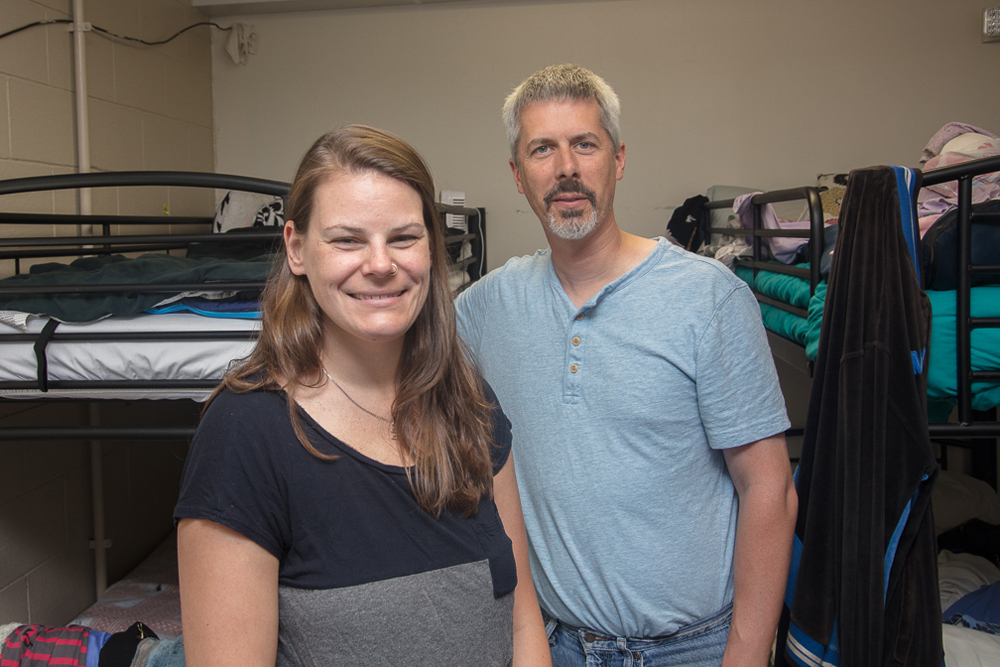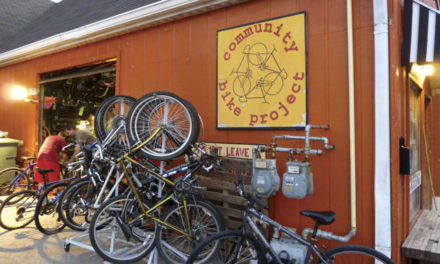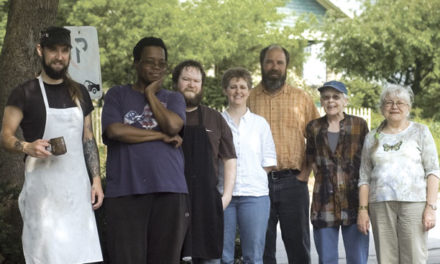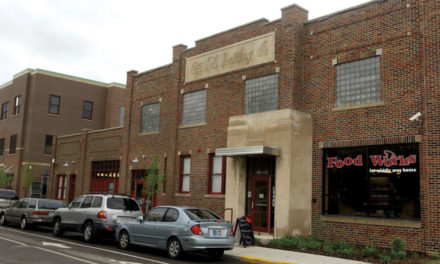
(l-r) Friend’s Place Program Manager Nikki Reising and the Rev. Forrest Gilmore, executive director of Shalom Community Center. Photo by James Kellar
BY MOLLY BRUSH
In 2015, Martha’s House, the region’s only nonreligious emergency shelter for adults, was facing financial problems serious enough to threaten its survival. In January 2016, Shalom Community Center took over the shelter’s management and renamed it Friend’s Place. Since then, Shalom has implemented a new Housing First approach that has significantly increased the number of shelter residents who find permanent housing.
When Shalom took over the shelter, only 15 percent of those leaving went directly into permanent housing. The numbers for 2016 show that 107 of the 173 clients who left the shelter found permanent housing. That’s 62 percent, nearly twice the state average of 33 percent.
The Rev. Forrest Gilmore, Shalom’s executive director, says many shelters employ a housing-readiness model in which people remain at a shelter until they’re deemed ready for permanent housing. In contrast, Shalom’s Housing First approach emphasizes getting people into housing as quickly as possible. According to Gilmore, having stable housing allows people to more effectively address other issues they might be facing, such as unemployment, addiction, or mental illness.
“We know that people’s lives are much more likely to improve when they’re in housing as opposed to when they’re in homelessness,” he says. “They’re much more able to work on those things in the space of housing.”
Shalom has made numerous other changes since taking over the shelter, including making improvements to the building and increasing the number of beds from 36 to 40. Friend’s Place shelter also follows Shalom’s own transgender policy, meaning residents utilize services in keeping with their gender identity.
Gilmore credits a shift toward a more compassionate, flexible approach to addressing residents’ diverse needs with increasing the number of people sheltered at Friend’s Place, which had dwindled below capacity until Shalom took over. “We’re now at full capacity,” he says. “Every bed is being made useful to the community while maintaining a safe, civil, and sober environment.”
Residents can remain at Friend’s Place as long as they are actively searching for permanent housing. Shalom draws on a variety of resources to aid with the housing search, including its own Rapid Rehousing program, working with the Bloomington Housing Authority, and building relationships with local landlords.
The success of the Housing First approach is gratifying, Gilmore says: “It’s beautiful to see the philosophy turn into results.”















